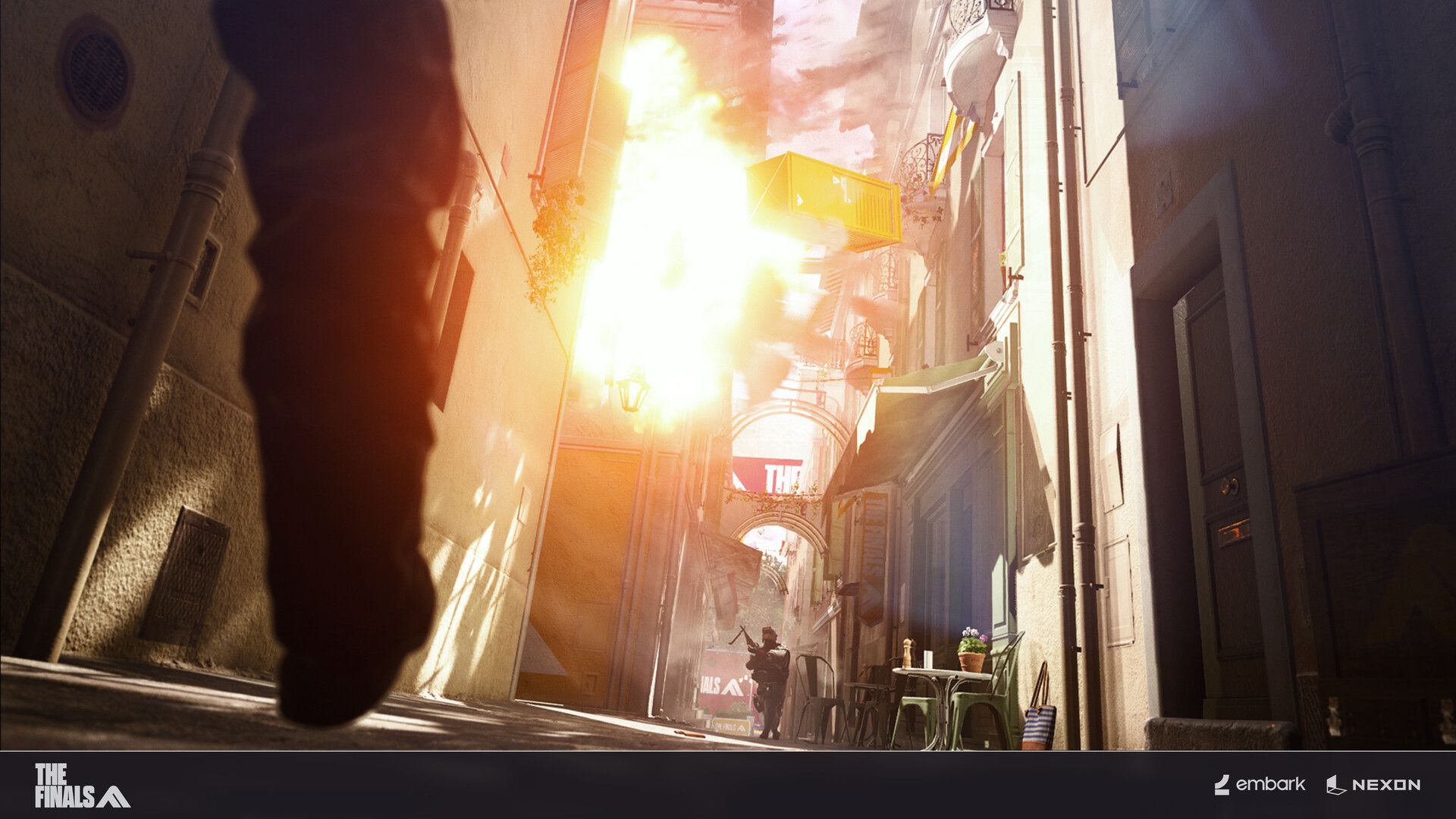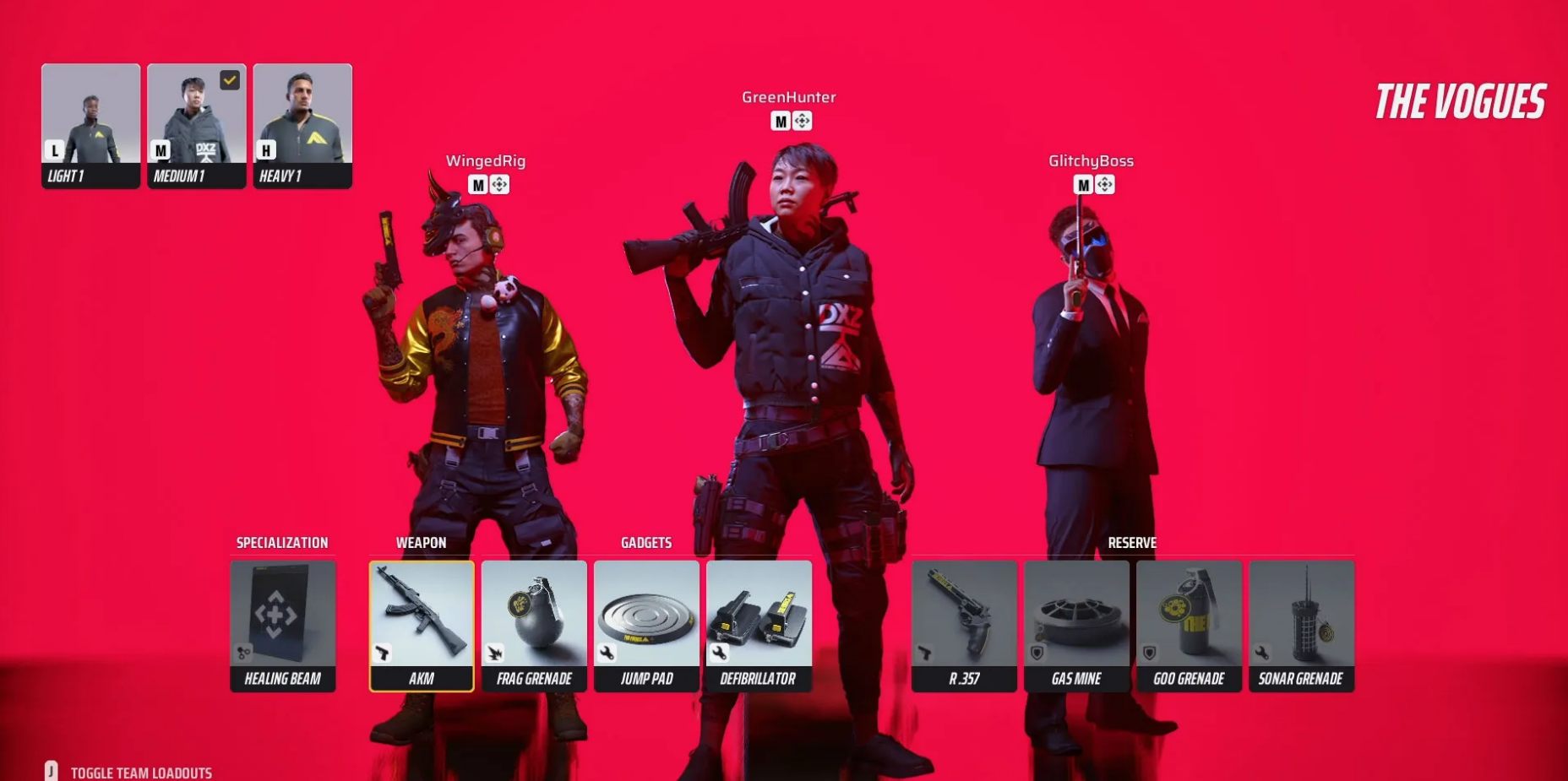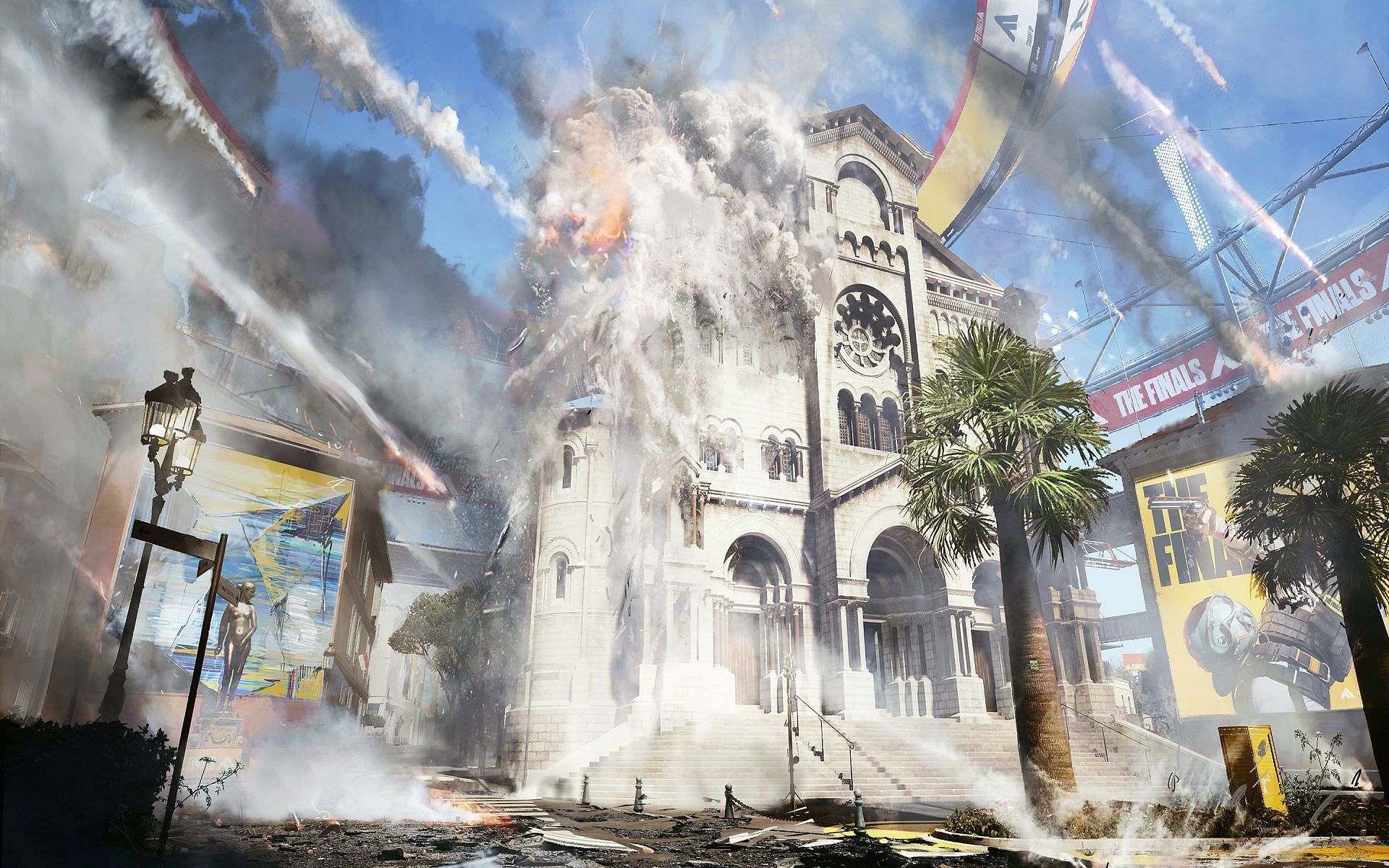The Finals Open Beta Impressions
Notable notes from the volatile competitive FPS

After breaking into the multiplayer FPS scene in March and June with its closed beta, The Finals conducted its open beta from October 26 until November 5. It made a strong impression on the FPS community not only with its destructible environments reminiscent of the Battlefield games but also with a unique take on team-based FPS gameplay. Not surprising, since its development team is partly comprised of ex-DICE developers.
In The Finals, a team of three players is dropped onto a map to complete objectives against other teams. The game’s main mode has players race to a Cash Box located somewhere on the map and deposit the box into a Cashout Station. Extracting a Cash Box from its vault takes time, as does depositing it into a Cashout Station. Moreover, a Cashout deposit can be claimed by an enemy team without losing progress, and if the deposit is not reclaimed before its completion, the enemy team will get the Cashout score instead.
The main draw of The Finals comes in its extensively destructible environment, which can completely change how a match plays. Almost every part of the map structure in The Finals can be displaced, from the walls to the floors. A chokepoint can be decimated by blowing the walls surrounding it. A room containing a Cashout Station can be completely leveled to the ground, leaving the station buried under a pile of rubble and debris. All these terrain dynamics can work to or against a team’s game plan, which further compounds the unpredictability of the game’s mechanics.

Still reflecting on Battlefield mechanics, players have access to three classes: light, medium, and heavy. The Light class, which specializes in close-quarters combat and infiltration, has the smallest build and the lowest health. The Medium class with the average build and health specializes in team support and mid-to-long-range engagement. Meanwhile, the Heavy class with the bulkiest build and highest health points specializes in soaking up damage and environmental destruction.
Players enter a match with a skill, a weapon, and three gadgets; all of these reflect the class’ role in the game. This equipment is swappable for other options that cost VR currency, which can be earned by playing the game. Each of the options can drastically change how a class plays. For instance, the Light class has the grappling hook skill for traversal, which can be swapped with a cloaking device for stealth. The Medium class can be converted from a medic archetype to area denial by swapping the defibrillator with the gas mine. The Heavy class can turn from suppressing fire to close-range demolitions by dropping the M60 machine gun in favor of the sledgehammer.

In addition to the loadout diversity, The Finals also has some interesting in-game mechanics, on account of the game taking place in a simulation. For instance, there is no fall damage, and the game's revival system is quite unique: rather than dropping dead, players turn into figurines after they get killed, which can be picked up and taken to a secure location before being revived. More broadly, some matches can implement exciting modifiers, such as the Cashout Station being on a moving platform, the map being covered in fog, and players exploding after they die.
All these aspects combined make for a thrilling, imaginative FPS experience. The destructible environment certainly evokes the immersion and adrenaline rush found in Battlefield games; however, thanks to the game’s simulated sense of reality, players are free to go bonkers as much as they want to achieve victory. They can jump, grapple, charge, explode, stab, and bash their way against the enemies, all without the confines of ‘realistic’ mechanics such as fall damage or stamina bars.

Aside from the screwball aspects of gameplay, there is also room for clever team play as well, thanks to the interactive environments and the plethora of tools at the players’ disposal. Teamwork and coordination are also rewarded in The Finals, and often survivability is more prioritized than lethality. It’s not just about scoring kills, but also about completing objectives and supporting one’s teammates; the lack of a traditional deathmatch mode in-game and the end-of-match leaderboards reflect this.
Unfortunately, but rather unsurprisingly, the game’s insane physics and gameplay come with its fair share of problems, some found in its balancing. For instance, some weapons are incredibly overpowered, while others can be quite underwhelming. Case in point, the suppressed pistol from the Light class deals massive damage while also having a high rate of fire, decent range, and almost no recoil. On the other hand, the Medium class’ lever action shotgun and pump-action grenade launcher suffer from inconsistent damage and comparatively high time to kill.
Compounding these problems are performance issues, missing features, and questionable design choices, which can harm the players’ experience. Stutters and frame drops sometimes happen during a match. Net code issues can pop up from time to time, on account of the game’s incredibly dynamic nature. As a result, bullets can sometimes disappear into thin air during firefights, and interactions such as throwing grenades can sometimes not register despite multiple inputs.

The Finals also suffers from missing features, such as the lack of kill replays and no reporting feature, which if left untreated can allow cheaters to fester in the game. There is also a lack of cancel game queue feature in the menu, which can make it awkward for players needing to be AFK before a match.
Lastly, there are questionable design choices to be found throughout the game. For example, the game, despite having a big map, lacks a squad-spawn system like the ones found in Battlefield games. This can cause non-revived players to be stranded, which can make them easy targets for enemy teams, which in turn can send them into a spiral of long and disadvantageous respawn timers. Meanwhile, the game’s training mode somehow queues players into a server, despite it clearly being an offline mode.
All in all, The Finals is a breath of fresh air in the FPS scene thanks to its focus on reality-defying team play, despite its shortcomings in the balancing and performance department. There is no release date for The Finals yet, which gives hope that developer Embark Studios will take their time in improving the game and implementing needed features. But until then, it’s definitely a game to keep on your radar.
